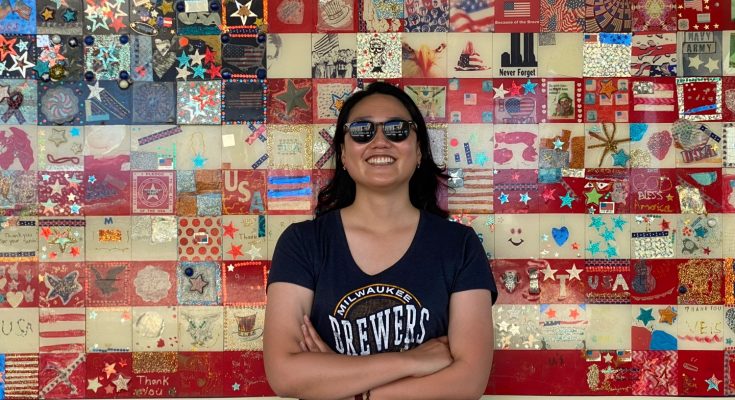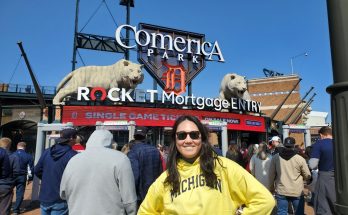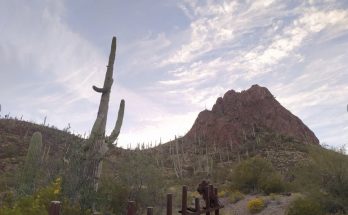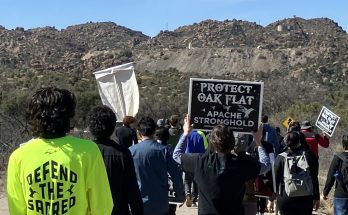On November 11 it was Veterans Day. The weather couldn’t be more perfect. How did you spend this special day?
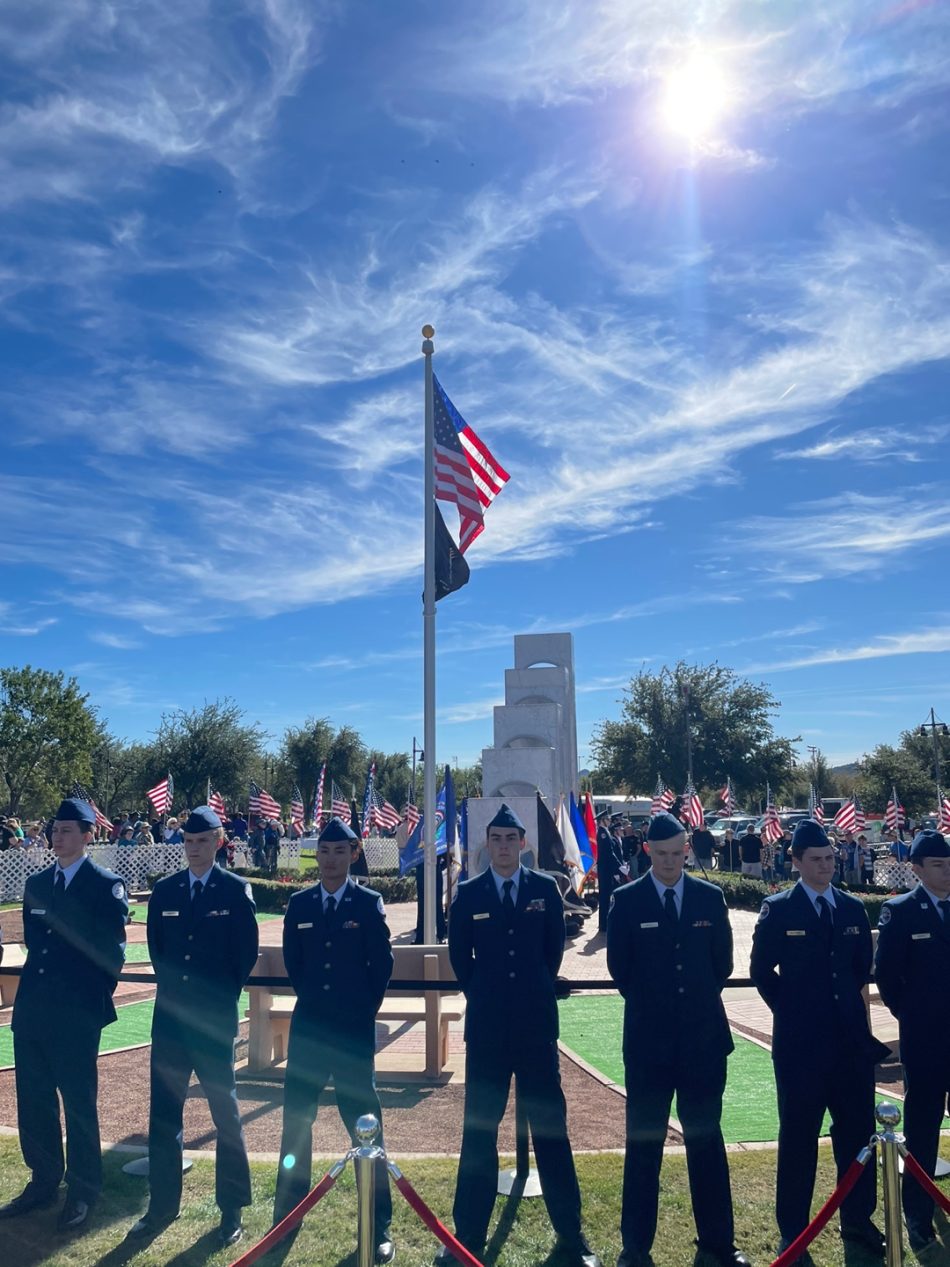
I visited The Anthem Veterans Memorial in the north of Phoenix. This monument is famous for creating a special scene only once a year. On November 11, exactly at 11.11 am the Great Seal of the United States is illuminated by the sun’s rays accurately aligning through the ellipses of five white pillars that represent the five military agencies – Army, Marine Corps, Navy, Air Force and Coast Guard.
While looking at this image on Veterans Day, I thought of my grandmother. She often told me stories about the Korean war and the United States military when I was a child. She is now 92 and lives in a small rural village near the Armistice Line. It is close to her hometown in North Korea.
Are you aware of the fact that two Koreas – divided into South and North – have joined the United Nations? Previously annexed by Japan, the Korean peninsula was divided into Soviet and American occupation zones after the end of World War II. When two sovereign states were established in 1948, backed by respective superpowers, war soon broke out as North Korea invaded South. The war lasted for three years (1950-1953) and never ended with a peace treaty, it is still a truce. Because it happened right after World War II, it is sadly called “Forgotten War,” even though 16 countries, including the United States, Britain, Turkey and South Africa participated in this war as United Nations forces.
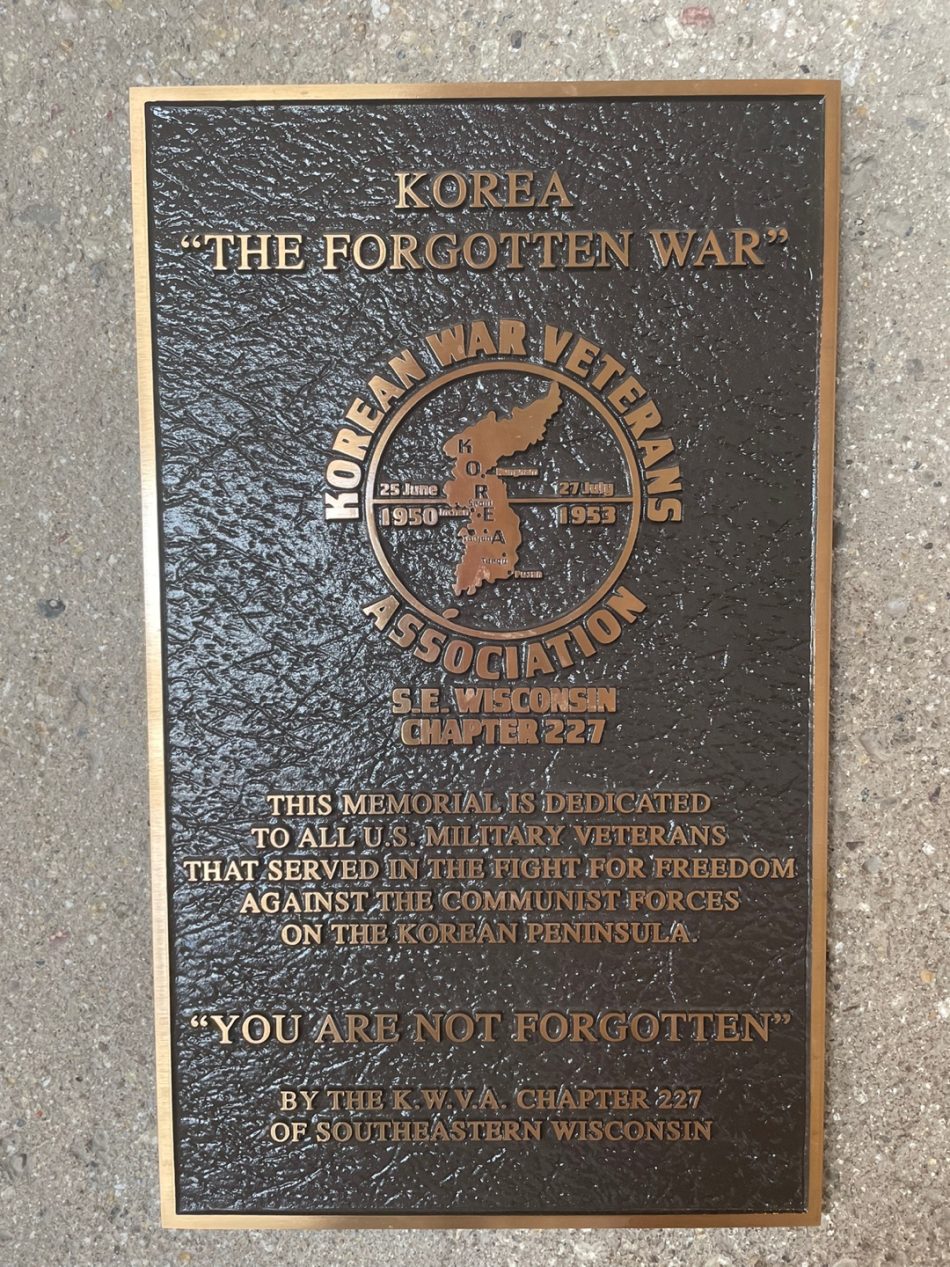
Through my family history I see the fatal scars that war leaves for a lifetime. My grandmother’s name is Soohwa Choi, and she is from Kaesong. It was the capital of the Goryeo Dynasty thousand years ago, a prosperous trade city called ‘the Venice of the Korean Peninsula.’ Kaesong is only about 30 miles north of Seoul. It is the same distance from downtown Phoenix to the suburbs of Chandler. But after my grandmother was forced to leave her home at the age of 20, she has never been there in over 70 years. Because it is North Korea now.
The Choi family was said to be prestigious landlords in Kaesong. In the midst of the Korean War clash between the liberal and communist camps, the Choi family became a victim. After the Korean peninsula was liberated from Japanese colonial rule in 1945, the Choi family began to suffer persecution, attacked by communist followers and losing most of their property. Finally when the war broke out on June 25, 1950, the Choi family fled to the south literally empty-handed.
My grandmother was the youngest of seven sisters, and lost four siblings during the war. Her eldest sister suffered massive bleeding while giving birth on her evacuation route, and she died without medical help. Her second sister suffered from appendicitis and died without treatment. Her third and fourth sisters were bombarded and killed while evacuating to find food for the family. Her mother — my maternal great-grandmother — could not overcome the grief of losing her daughters in vain during the war until her death. For more than 30 years after the armistice, my great-grandmother was unable to eat the food that her deceased daughters loved.
My grandmother almost died, too. She was trapped in a city surrounded by North Korean and Chinese forces. Hiding in an empty house and shaking, she happened to see a church cross through the window. Not religious at the time, she prayed desperately: “God, if you save me, I will love and believe in you for the rest of my life.” Miraculously, American bombers appeared and saved the lives of the people in the besieged city. After that my grandmother became a devout Christian and always told me: “Americans saved my life”.
So when I told my grandmother that I am going to America as a Humphrey fellow, she was thrilled. “Dear, I’m so proud of you. And if you have a chance to see the Korean War memorial, make sure to go and pay a silent tribute. We must never forget their sacrifice because you are here today in return for the blood of countless young people 70 years ago.”
So it has become my habit to look for the Korean War memorials wherever I go in the United States. And I have found them in many cities, as proof that people from all over the States participated in this war. At the University of Kansas, where I studied last summer, there is a memorial in the middle of the campus, in honor of many students and alumni who died in the war. I found memorials in Milwaukee (Wisconsin), Springfield (Illinois) and Independence (Missouri). In New York there is a Korean War memorial in the middle of Battery Park, overlooking the Statue of Liberty.
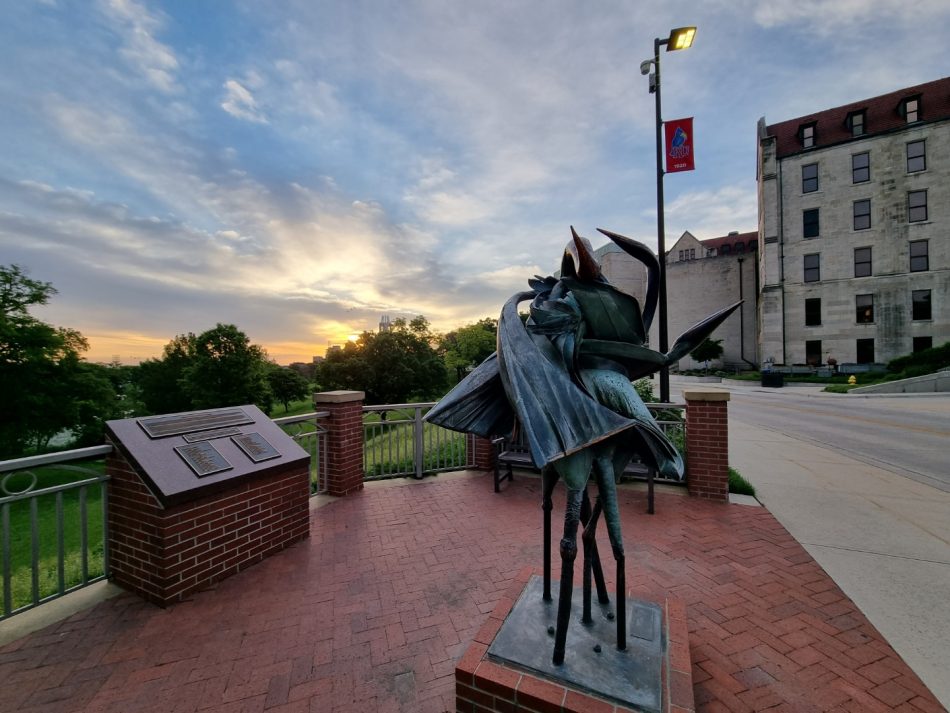
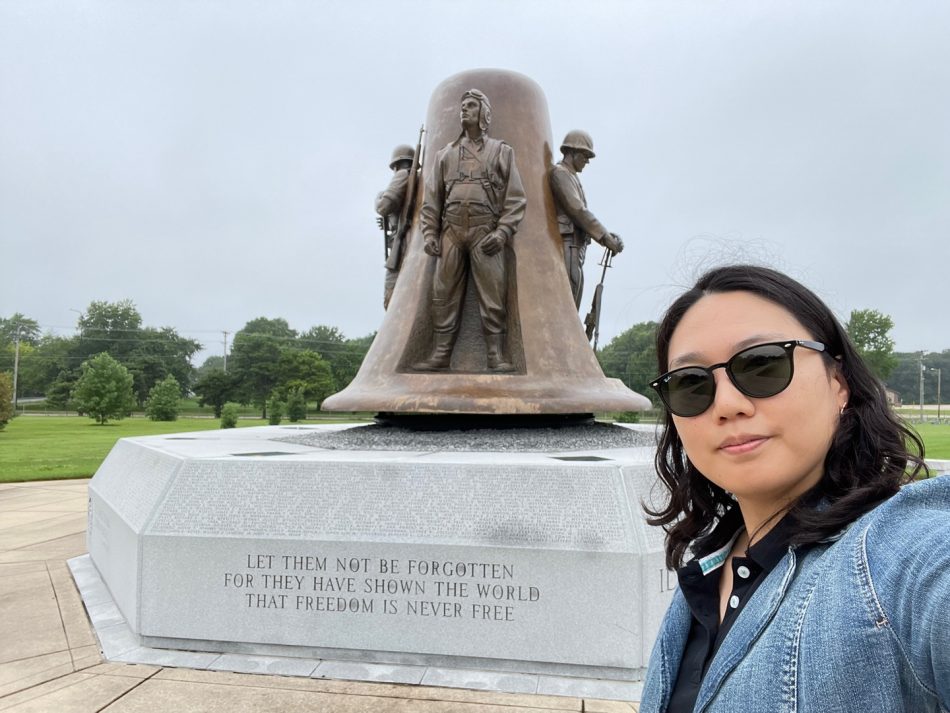
The most heartbreaking Korean War memorial I have seen in Washington DC. In the space just to the left of the Lincoln Memorial, 19 American soldiers in poncho coats stand with their rifles. It is modeled after the U.S. Marines during the Battle of Chosin Reservoir, which is called “the coldest battle in history.” It really was much colder than the battle of Stalingrad and even recorded – 45 ℃.
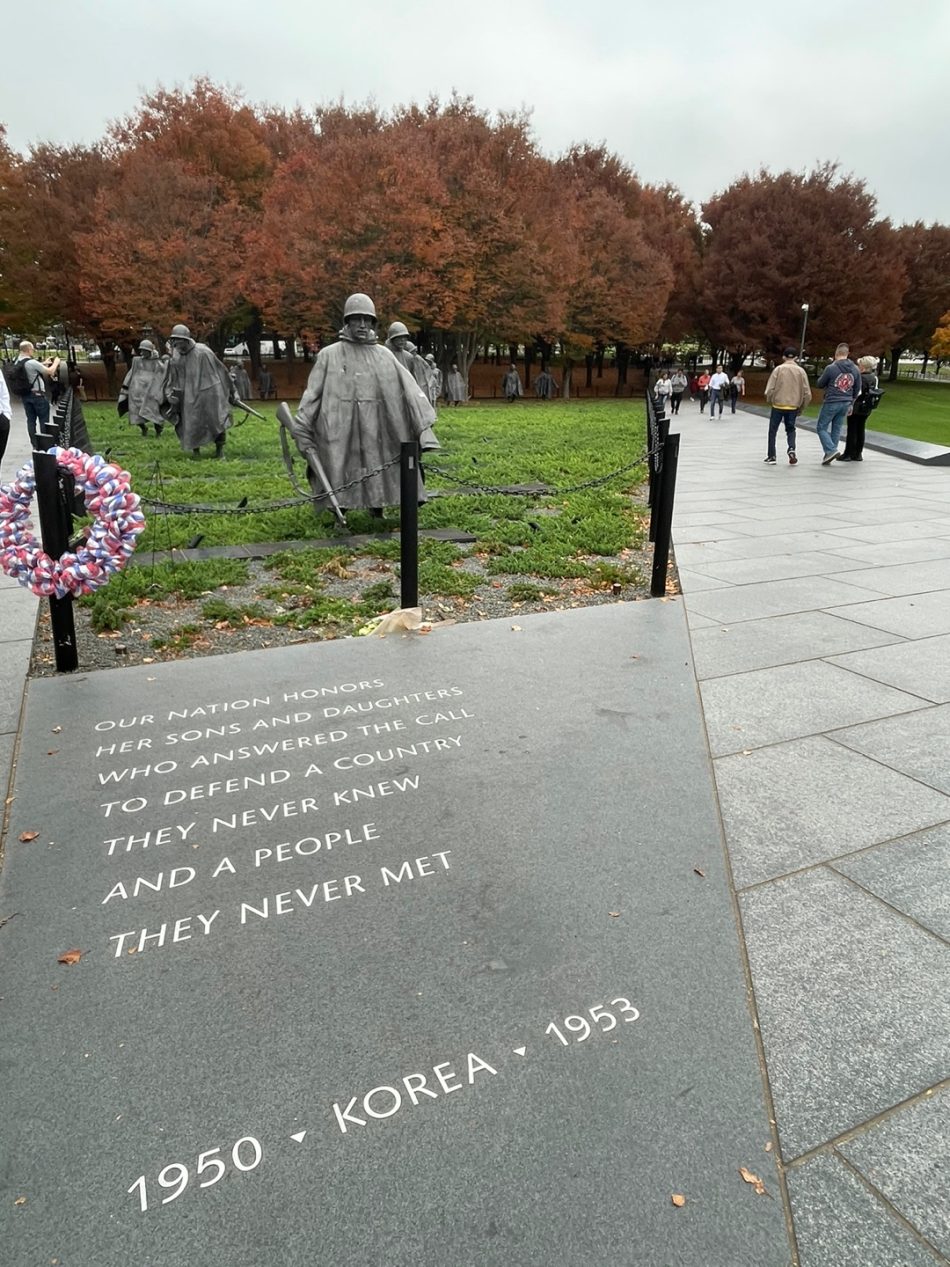
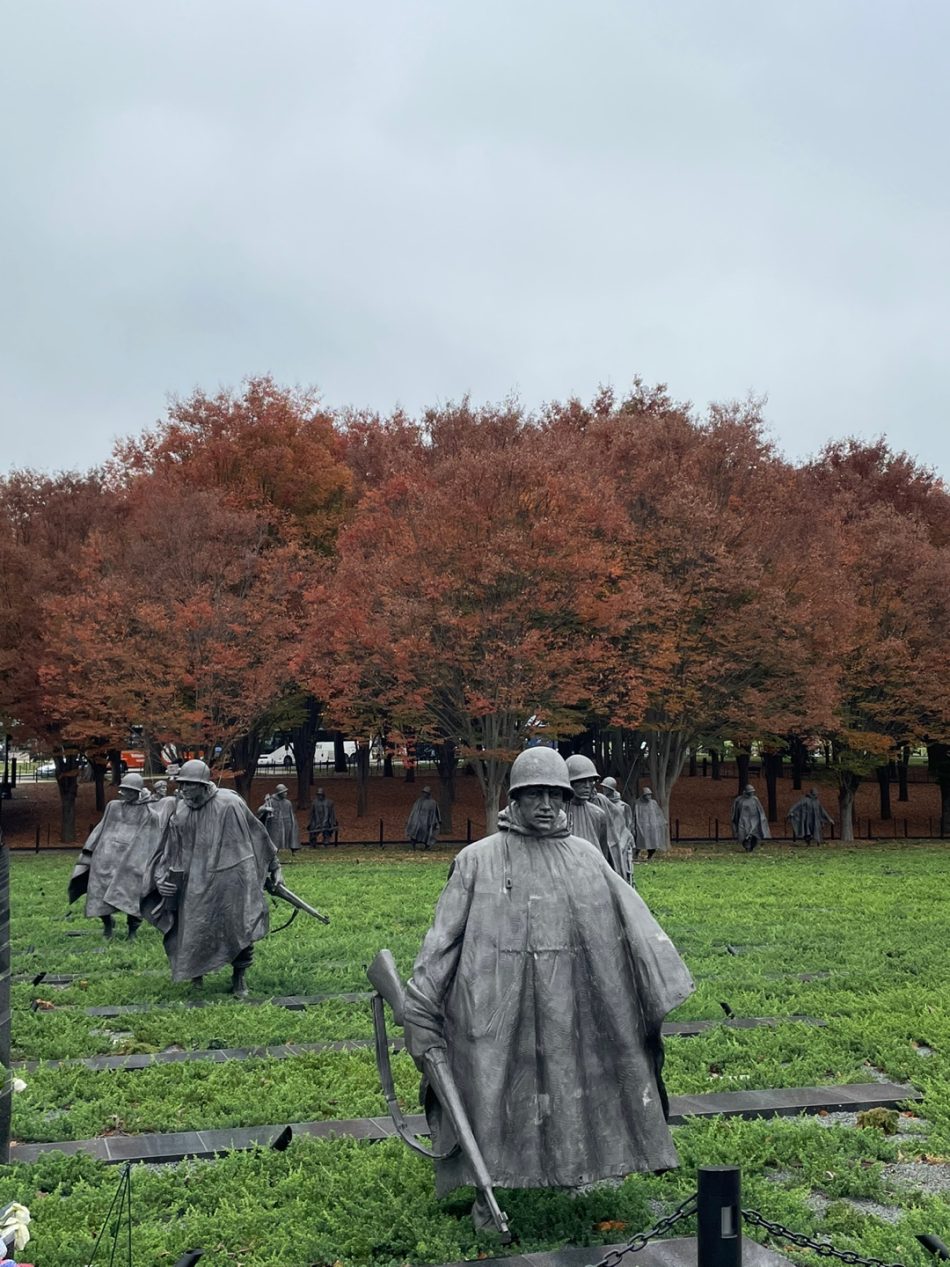
“Our nation honors her sons and daughters who answered the call to defend a country they never knew and a people they never met,” reads the inscription in front of these soldiers. Many young Americans have died for people in countries that simply don’t know their names or faces. Thanks to their sacrifice, Koreans, including my grandmother, continue their lives. Their blood gave freedom to Koreans. Unfortunately, the North Koreans never had it.
As I slowly glanced at the wall of remembrance holding the names of 43,808 American soldiers who died in the Korean War, I was thinking how I can repay their sacrifice in a way that truly commemorates them. I came to the conclusion that I have freedom thanks to the sacrifice of the unknown, so I must also fervently protect the freedom of others even if they are unknown to me.
The war in Ukraine that broke out in February is still not over. Again, a tsunami of massive deaths is repeating itself. Every time I see Ukrainians crying over families lost in the war, I am reminded of my grandmother’s tragedy. There are also a series of vain deaths of Russians. Ukraine has recently reclaimed Kherson, a key city in the southern region, from the Russian occupation. I earnestly pray that this will be a meaningful stepping stone to peace.

